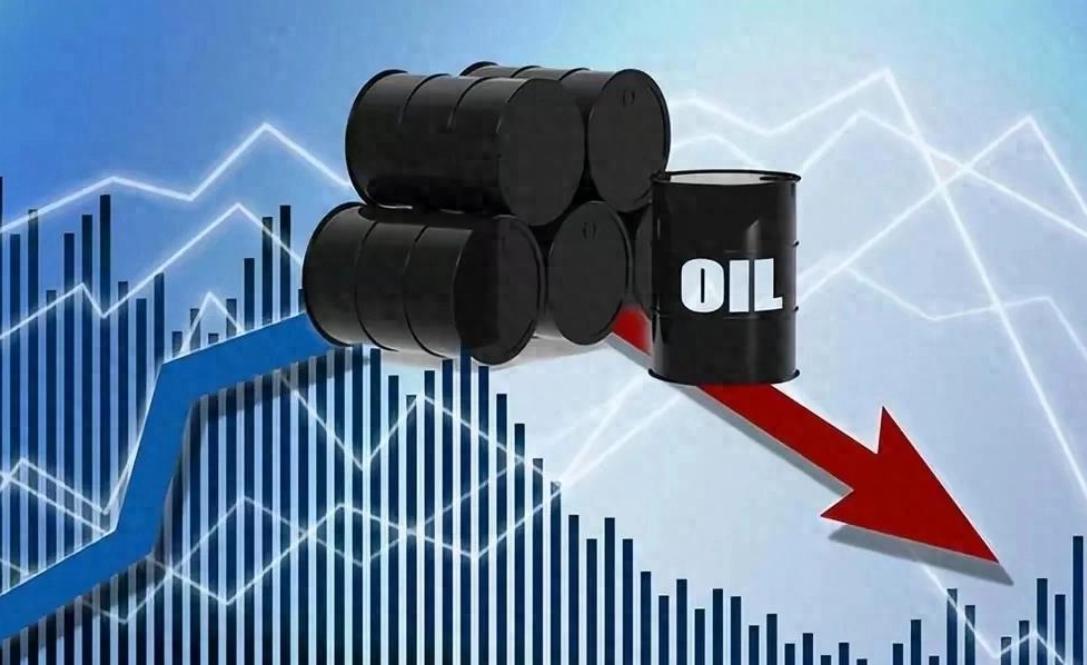
The sharp drop in international oil prices this week led to a new round of air strikes against Iran, but the targets did not include Iran's energy and nuclear facilities, easing tensions in the Middle East and sending crude prices sharply lower. As neither side wants to escalate the situation, international oil prices, which had risen due to the conflict in the Middle East, have begun to fall. With new efforts to prop up the Gaza fire back on the agenda, the geopolitical premium has shrunk further. Recently, the global economy is experiencing signs of weakness, and the overall economic trend is slowing down. For example, the latest GDP growth forecast for the United States has been revised down, and several major corporate earnings reports have hinted at weakening consumer demand. In addition, the European region is also facing slowing economic growth pressure. With the rapid decline in crude oil prices, many speculators have turned their eyes to other investment instruments, and interest investments are increasingly affecting market dynamics.
There is still considerable uncertainty about the future direction of oil prices. This recent dramatic decline has attracted a lot of attention, but it also has a complex and multi-faceted impact. The first is the macroeconomic impact, falling oil prices usually lead to lower production costs, thereby reducing inflationary pressure. This is of positive significance to keeping prices stable and the economy running smoothly. The plunge in oil prices could trigger a correction in market expectations for economic growth. On the one hand, low oil prices help reduce business operating costs and boost consumer confidence, which in turn boosts economic growth. On the other hand, if the decline in oil prices is caused by adverse factors such as geopolitical risks and a global economic recession, it may trigger market concerns about the economic outlook.
The second is the impact on consumers, the decline in oil prices will directly reduce the travel costs and fuel costs of consumers, including private car refueling costs, public transportation costs and so on. This will help increase the willingness and spending power of consumers to travel, making car travel more economical. This will bring cost savings to industries such as daily commutes, long-distance travel and logistics. In addition to travel costs, falling oil prices may also bring a series of ripple effects, such as lower logistics costs, lower commodity prices, and so on, thereby reducing the cost of living for consumers. Further boost consumer confidence as they will have more disposable income to spend on other things. This helps to promote the overall consumer market activity.
Third, the impact on related industries, falling oil prices will have a direct impact on the energy industry, especially upstream exploration and development companies. The cost of extracting, processing and selling oil is relatively high, and lower oil prices will squeeze their profit margins. These enterprises may face the dilemma of declining revenue and decreasing profits, and need to adjust their business strategies to cope with market changes. However, for the transportation industry, the impact is also good and bad. On the one hand, the reduction of the use cost of traditional fuel vehicles may delay the popularization of new energy vehicles. On the other hand, it also provides an opportunity for energy companies to transform and upgrade in response to future changes in the energy market. However, if the oil price is depressed for a long time, it may also lead to increased competition within the industry, and some enterprises face the risk of elimination.
Fourth, the impact on geopolitics, the decline in oil prices may be related to the easing of tensions in the Middle East. It may also lead to changes in international relations. On the one hand, it may intensify competition and conflicts among oil-producing countries. On the other hand, it may also prompt countries to strengthen energy cooperation and dialogue to jointly address the challenges of the energy market.
To sum up, a 6% drop in oil prices will have multiple impacts that will be intertwined and work together to have profound effects on the global economy and society. It is necessary to pay close attention to market dynamics as well as changes in macroeconomic policies to address the challenges and opportunities that may arise.

报告显示,中国电力投资加速增长,预计2024年电网基建投资将超过5300亿元。
近日,市场迎来了一则引人注目的消息:工业巨头3M公司(MMM.N)在本周五公布了其季度业绩报告,随后股价飙升至近两年来的
最近,外媒给OpenAI算了笔账,今年可能要血亏50亿美元。
近日,巴黎奥运会和世界铁人三项协会联合发布了一项重大决定,宣布因塞纳河水质污染问题,原定于近期进行的奥运会铁人三项首次下
当地时间7月18日,法国巴黎发生了一起令人震惊的持刀袭警事件。
近期,一则重大消息在国际舞台上引起轩然大波,马来西亚宣布加入金砖国家。
调查发现,互联网和智能手机的使用干扰了韩国近五分之一学生的生活。